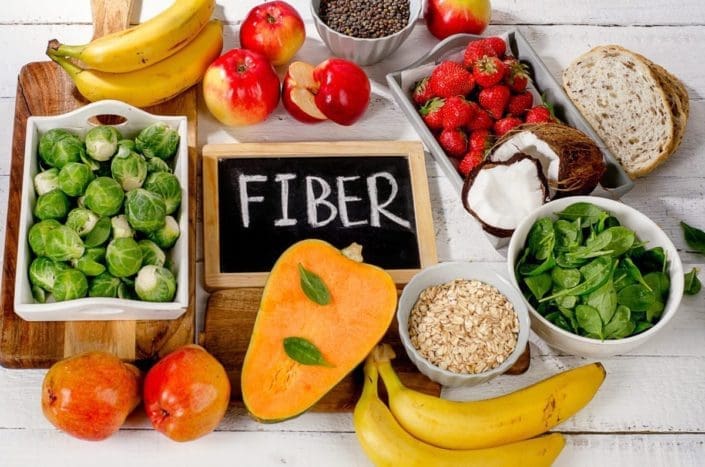10 Amazing Health Benefits of Eating More Fiber
When do you think of fiber as exciting? Yeah, that would be never. But this research will help change your mind.

1. You'll Lose Weight
Even if increasing your fiber intake is the only dietary change you make, you'll shed pounds. Dieters who were told to get at least 30 grams of fiber a day, but given no other dietary parameters, lost a significant amount of weight, found a recent study in the Annals of Internal Medicine. In fact, they lost nearly as much as a group put on a much more complex diet that required limiting calories, fat, sugar and salt and upping fruit, veggie and whole-grain consumption. Fiber-rich foods not only fill you up faster and keep you satisfied longer, they also prevent your body from absorbing some of the calories in the foods you eat. "Fiber binds with fat and sugar molecules as they travel through your digestive tract, which reduces the number of calories you actually get," explains Tanya Zuckerbrot, R.D., author of The F-Factor Diet. Another study found that people who doubled their fiber intake to the recommended amount knocked off between 90 and 130 calories from their daily intake—that's equal to a 9- to 13-pound weight loss over the course of a year.
2. Maintain a Healthier Weight Over Time.
Yep, it can also help you avoid putting pounds back on. People who got more fiber tended to be leaner overall—while those who were obese got an average of almost 1 gram a day less fiber than normal-weight participants, according to a study at the Medical University of South Carolina. And recent research at Georgia State University found that mice put on diets lacking in fiber—specifically soluble fiber—gained weight and had more body fat compared to those who weren't deficient. What's more, mice given adequate soluble fiber resisted fat gain—even when put on a high-fat diet.
3. Cut Your Type 2 Diabetes Risk.
It's a well-established fact. A recent analysis of 19 studies, for example, found that people who ate the most fiber—more than 26 grams a day—lowered their odds of the disease by 18 percent, compared to those who consumed the least (less than 19 grams daily). The researchers believe that it's fiber's one-two punch of keeping blood sugar levels steady and keeping you at a healthy weight that may help stave off the development of diabetes.
4. Lower Your Odds of Heart Disease.
5. Have Healthier Gut Bacteria.
6. Reduce Your Risk of Certain Cancers.
7. Live Longer, Period.
8. Be more, well, regular.
Snicker all you like, but "constipation is one of the most common G.I. complaints in the United States," says Zuckerbrot. And you don't need us to tell you it's no fun. Fiber makes your poop softer and bulkier—both of which speed its passage from your body.
9. Get an All-Natural Detox.
Who needs a juice cleanse? Fiber naturally scrubs and promotes the elimination of toxins from your G.I. tract. Explains Zuckerbrot: "Soluble fiber soaks up potentially harmful compounds, such as excess estrogen and unhealthy fats, before they can be absorbed by the body." And, she adds, because insoluble fiber makes things move along more quickly, it limits the amount of time that chemicals like BPA, mercury and pesticides stay in your system. The faster they go through you, the less chance they have to cause harm.
